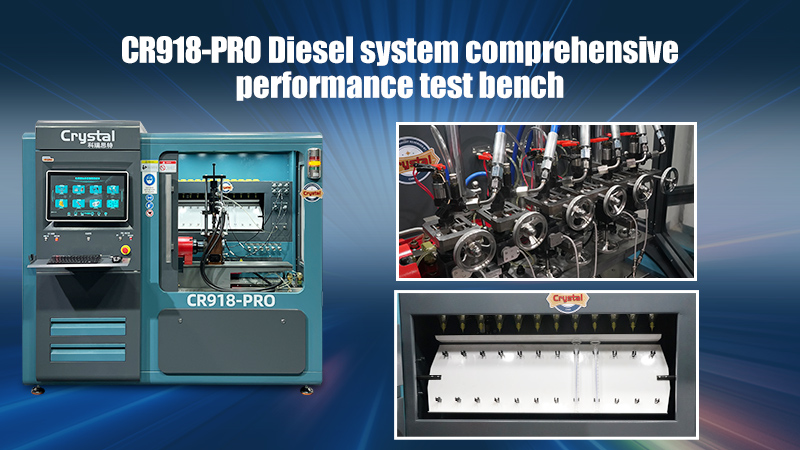12 Nov 2025
The Importance of Injector Testing
In modern diesel engines, the fuel injection system is a core component, and the operating condition of the injector directly affects engine performance, fuel economy, and emission standards.
Abnormal injector operation, such as uneven injection, poor atomization, or dripping, can lead to:
Engine starting difficulties
Increased fuel consumption
Excessive emissions
Increased noise or reduced power
Therefore, regular testing of injector performance is a key step in ensuring efficient engine operation and reducing maintenance costs.
Core Content of Injector Testing
injector testing primarily includes the following aspects:
Fuel Quantity Test
Measures whether the amount of fuel injected by the injector meets the standard under different operating conditions (idle, medium speed, and high speed).
Fuel Return Test
Determines injector sealing and needle valve wear.
Fuel Atomization Test
Observes whether the spray pattern is uniform and whether there is any dripping or spray deviation.
Response Time Test
Checks the response speed of the solenoid valve or piezoelectric control system.
This data helps technicians accurately determine the health of the injector and determine maintenance or replacement.
Injector Test Equipment Selection
Testing injectors in modern common rail systems requires high-precision and high-stability testing equipment.
For example, our CR918-Pro common rail test bench has the following features:
Capable of testing various injector and fuel pump types (Bosch, Delphi, Denso, Siemens, etc.)
Supports simultaneous testing of 2, 4, or 6 injectors, improving testing efficiency
One-touch automatic injector cleaning function
High-definition touchscreen operation with real-time data display
Supports remote diagnosis and software updates
These features make the testing process more intelligent and precise, and also make maintenance personnel's work more efficient.
Injector Maintenance and Testing Recommendations
To ensure the long-term stable operation of the fuel injection system, we recommend:
Injector inspection every approximately 50,000 kilometers.
Use qualified fuel to avoid impurities and clogging.
Regularly replace the fuel filter.
If you experience starting difficulties or idle jitter, perform a fuel injector test immediately. Although the injector is just a small component in the engine, its performance determines the "heartbeat" of the entire engine.
Selecting the right testing equipment and professional testing solutions can not only improve engine performance but also significantly reduce repair risks and costs.
If you would like to learn more about injector testing equipment or common rail system solutions, please feel free to contact us!

Keywords: common rail test bench
Originally published 12 Nov 2025, updated 12 Nov 2025.